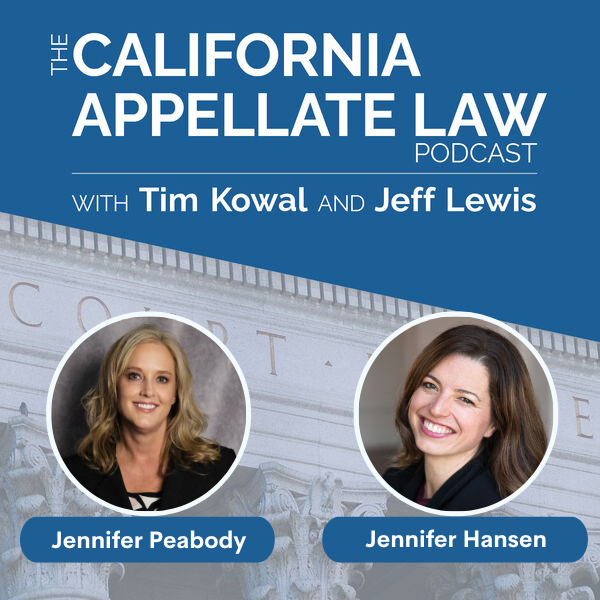
There is a 700-appellate case backlog in Los Angeles and only around 450 attorneys on the California Appellate Project—Los Angeles panel. CAP-LA attorneys Jennifer Hansen and Jennifer Peabody share how the rest of us can pitch in to assuage this gap in the administration of justice.
Why work as a panel attorney?
Tune in to hear how appellate attorneys can make a profound impact while building their careers and enhancing their reputations in the legal community.
Jennifer Hansen biography, LinkedIn profile, and Twitter feed.
Jennifer Peabody biography, LinkedIn profile, and Twitter feed.
Appellate Specialist Jeff Lewis' biography, LinkedIn profile, and Twitter feed.
Appellate Specialist Tim Kowal's biography, LinkedIn profile, Twitter feed, and YouTube page.
Sign up for Not To Be Published, Tim Kowal’s weekly legal update, or view his blog of recent cases.
Below are links to all five project websites and the application for each. Panel Application Links:
Examples of online resources for appointed attorneys are below: